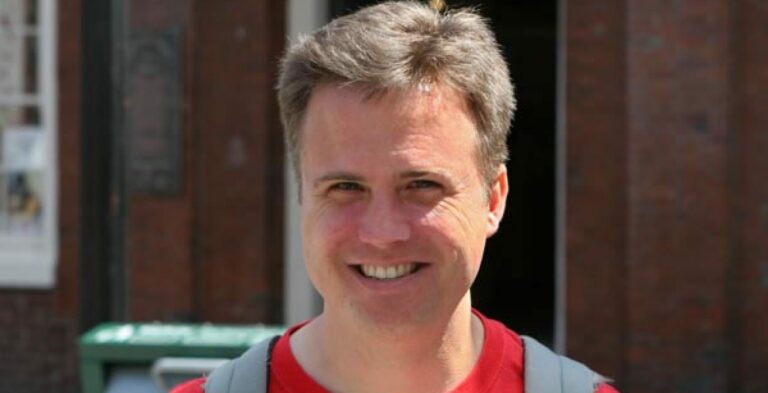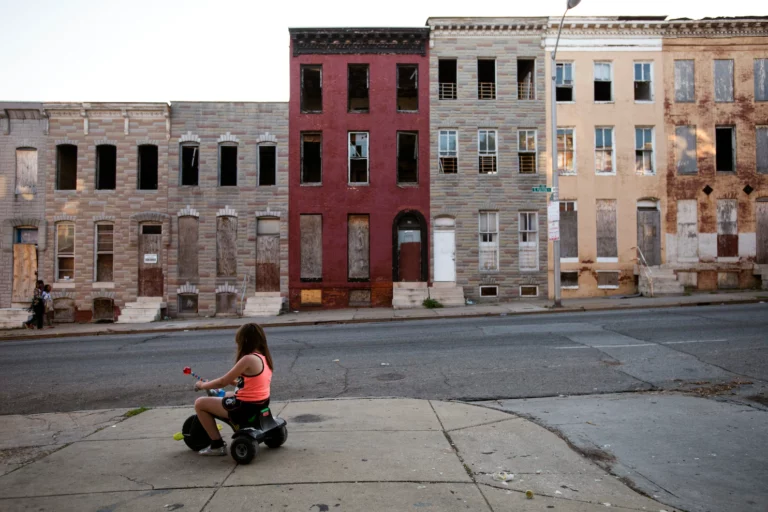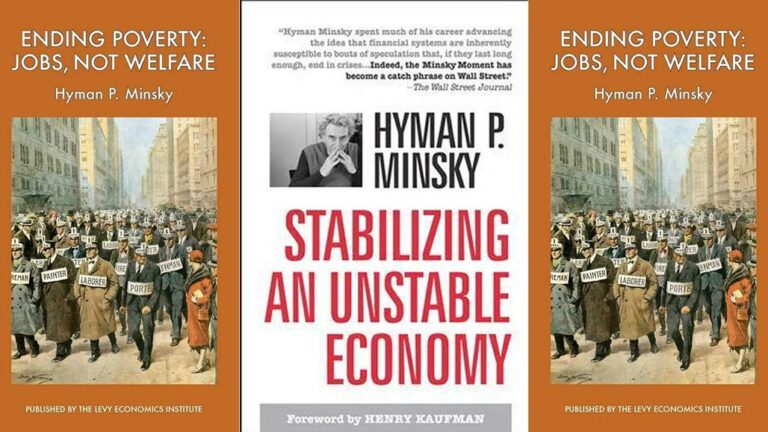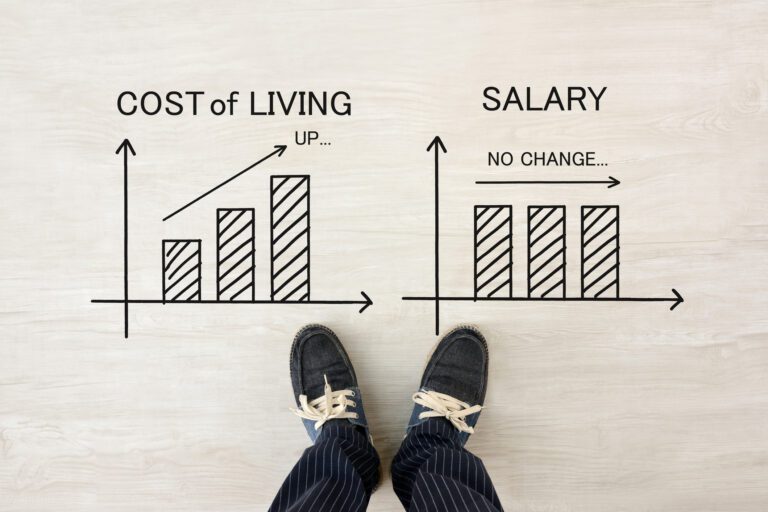This interview was originally released on April 28, 2017. The Next System Project’s Gar Alperovitz tells Paul Jay that the Federal Reserve should use quantitive easing, i.e. create money, to take Big Oil companies out of the equation and finance a massive green infrastructure program.
PAUL JAY: Welcome back to, Reality Asserts Itself, on The Real News Network. I’m Paul Jay. We’re continuing our discussion in the days leading up to the April 29th Climate March, about just what would a progressive do, if a progressive was elected President of the United States. Or even took over, perhaps a state legislature, or if he was the governor, maybe even a mayor. But a particular focus right now on, if a federal governor, the president, had to deal with a hostile Congress, and a hostile fossil fuel industry, and so on. And in Part 1 we interviewed Gar Alperovitz, who I’m about to introduce again, said, “Well, buy them out.” The Fed created money to save Wall Street. Well, create money, and buy out the fossil fuel companies. Take them out of the political equation, and change the whole arc of what they do, away from fossil fuels. And I ended the first segment by saying, okay, well, that isn’t going to be the only sector you’re going to have a war with. The other war is going to be with finance. And that’s what we’re going to talk about now. So, thanks for joining us again, Gar.
GAR ALPEROVITZ: Glad to be here.
PAUL JAY: Gar Alperovitz is co-founder of the Democracy Collaborative, and the founder and co-chair of the Next Systems Project. Previously, he taught political economy at the University of Maryland. He’s the author of many books including the soon-to-be-released, “Principles of a Pluralist Commonwealth”. Thanks for joining us again.
GAR ALPEROVITZ: Glad to be here. Thanks.
PAUL JAY: Okay. So, this progressive president is in power, fighting hostile forces in all quarters. In theory, there is a massive mass movement, because there’s no way such a person would’ve been elected without it. You’re dealing with somewhat a society at war, which, in fact, is what we’re doing now. It’s just the movement side is not perhaps as strong as the other side. But you’re going to have to deal with the power of finance. It’s not just the controls they have, in terms of blackmailing the economy. And we’ve heard, you know, “Too big to fail, too big to jail,” but also the convergence of interests between the fossil fuel industry and Wall Street is not small. They’re very integrated. In fact, the Koch brothers are almost as big a financial empire as they are a fossil fuel empire. So, how are you going to deal with the power of Wall Street? So far, regulation doesn’t seem to even dent their armor.
GAR ALPEROVITZ: Well, obviously, nothing is going to change, unless our politics change. So, let’s be clear about it. We’re talking about building a movement that can enforce a new politics. And without that, very little is going to happen. But what we do need to talk about, is how you then do something serious, and we talked about what’s called quantitative easing for the planet. That is, using the power that the Federal Reserve Board has to create money, which it does all the time, and just did at a very large scale for the banking industry. Just poured trillions of dollars in, to use that to buy out these big oil companies who are going to fight you tooth and nail.
PAUL JAY: And let me say again, did this with virtually no inflationary effect.
GAR ALPEROVITZ: Absolutely. People who don’t know about the banking industry, and don’t follow this, don’t realize that very large sums of money were created out of nothing -– that’s the way the Federal Reserve Board does it all the time, all over the world. Seems like magic to most people, but that’s the way the banking industry does it, and they did it to finance the big banks. Didn’t create any inflation. We know how to do this.
PAUL JAY: Let me just say again. Assuming I have this right, the government issues bonds, T-Bills, and the Fed buys them, and thus the money from the Fed that they’ve created, goes to the government, that can then do something with it. In the previous case, they gave it to the big banks. And in your case, buy out the fossil fuel business. But what do you do with finance who ain’t gonna like any of this?
GAR ALPEROVITZ: Yeah. And that’s one basic technique. That is one way to do it. But without getting too complicated about it, that’s basically what happens. So, yes, the big banks are not going to like this. On the other hand, they’re going to get new deposits. So, there’s maybe a division between some of the banks, and some of the other banks may or may not be as opposed to it as some of us think. We’ll see.
PAUL JAY: Because some of this money that went to buy out the oil companies is going to wind up in the banks.
GAR ALPEROVITZ: Exactly. That’s exactly right. So, you’re trying to isolate the oil companies. But obviously, the banking industry isn’t going to like the use of these techniques for very powerful and positive reasons. Think about it this way. World war. Any time you run a war, what do you think happens? The banks. Money is created by the Federal Reserve Board, people go to work, the economy hums. Roosevelt did that in what was called the Reconstruction Finance Corporation to rebuild during the Depression. Lincoln did it to build the transcontinental rails. We just did it with the banking industry, just to bail out the banking industry, and to stabilize the banks. It’s being done all over the world. It’s called quantitative easing now. It’s the technical term. So, the bankers are going to fight you. The thing to recognize, and I worked in both the House and Senate at an early point in my career, and also in the State Department, when I was much younger. And I was there during the 1965-66 movement. That’s when Goldwater took down 37… change of House seats from 70 people… 70 people changed sides. Johnson jammed through a really serious program at that point. We got Medicare, we got Medicaid, we got new environmental programs. So, this isn’t going to happen without a big political power base. And a political reaction and movement building that has new ideas in its head, that knows something. So, now is the time to really begin to think through a tough program, and move to build a movement simultaneously. You can’t do one or the other. What we’re talking about here, is a new program that really says this is the right thing to do, and we’re building politics to do it.
PAUL JAY: So, what do you do with the banking sector?
GAR ALPEROVITZ: Well, the banking sector has to be taken on. And the only way to take them on is with a political movement powerful enough to stop them, if they begin to resist. And they will resist. They’ll try to put amendments in to regulate what you’re doing, with their people in the House and Senate. And they have to be beaten back. That’s a political fight of the first order. But what I am suggesting to you –- and people who’ve been watching how much time we’ve got left on climate change, know there’s not a lot of time, and we’re doing good things. We’re doing wonderful things with solar, and wind, and insulation, and all the things people are doing — we’re going to need a quantum jump in activity. And that means building a movement that has these kinds of bold, tough, let’s get it done, ideas in its heads, as well as on the ground. We’ve got to walk on two legs. Movement building is the heart of this.
PAUL JAY: If you have the movement, and you are able to elect the candidates at the federal level, and other levels, that agree with this kind of program, you still… I mean, one of the reasons you gave for nationalizing, essentially, the oil companies, it takes them out of the political equation.
GAR ALPEROVITZ: Right.
PAUL JAY: Well, don’t you have to do something similar with finance? Don’t you have to have some kind of public banking system, or nationalize some sector of the finance, to stop their ability to blackmail the economy, and block some of these things?
GAR ALPEROVITZ: Well, they’re in a little bit different position because the oil companies can block you from doing what you need to do on climate change. The banks aren’t quite in that position. They still have to run a business. And they will not like what you’re doing, but, in some ways, they have to go along with the game. Otherwise, you might have to challenge the banks directly. So, I think we’re talking about isolating the big oil companies, because that’s where the big problem is. There are a lot of other problems at the banking industry that we might take up another day. But, I think this is the one that’s really, really with a time fuse on it. Why such dramatic measures? Because we’re looking at a very short — three, four, five years before we start going well over the 2-centigrade mark that everyone thinks is where we start hitting disaster levels.
PAUL JAY: Okay. So, you wouldn’t decide you have public banking and taking some of the power away, you wouldn’t take on both sectors at the same time, is what you’re saying.
GAR ALPEROVITZ: That’s a whole ‘nother fight. I mean, we can talk about that another day, but I think there’s a whole movement on… you know, people say, when we have the next big banking crisis, we ought to break them up. I think after you break them up — just like Standard Oil, just like AT&T — they ill regroup and be right back at the trough. So, at some point, there’s a whole big fight to have on big public banking. Many states or cities are starting public banking. There’s a public bank been in North Dakota for a hundred years. This is a movement that’s also building to the national level. But that’s a different fight for another day.
PAUL JAY: Okay. Let’s take this scenario. The oil companies have been bought out. We’ve seen from the quantitative easing, the making of money that went to the big banks was not inflationary, because it didn’t come back into the economy in terms of growth of jobs, and wages going up.
GAR ALPEROVITZ: Right.
PAUL JAY: But, the next step is the building of a massive infrastructure project. You have to build this green economy. You have to start transforming the automobile industry into making more… not just more efficient engines, but more high-speed trains. It’s a massive investment. It’s a multi-trillion-dollar project, in all likelihood, that if you finance through the same way, quantitative easing, making of money, the argument will be, well, that’s different than buying out the oil companies. That will create way more jobs. You will get closer to full employment, and according to the logic, that will be inflationary. So, how do you answer that?
GAR ALPEROVITZ: Well, that’s true in certain sectors. But I mean, the first thing is to get them from stopping blockage of regulatory structures that they’ve been imposing, and fighting, and stopping in the Senate from the word go. That’s the first thing to get them to stop doing. There’s a lot of… you have to build new capacity if you want to build a lot more cars that are… cars that run without putting fumes into the air. And there are a lot more electric cars being developed and run by solar, developing the solar batteries, et cetera, solar, and then using new batteries to capture and use the productive electricity. All that has to be done. But we are not necessarily at that point where that’s going to be the problem of inflation. That’s a fight we have to fight. The first thing to do is stop the CO2 going out that’s coming right out of the big oil companies, and the gas companies, and the coal companies.
PAUL JAY: Does this kind of model only work in something like the United States, that has the world reserve currency? I mean, can a Canada do this? Can a Germany? There seems to be a point where, how many economies can just make up money, well, without debasing… a run on their currency, I guess is what you would say? I mean, I would think one of the fears of the plan, even with the buying out of the oil companies, is what people have coined the term sovereign raiders. You know, they love creating currency wars. And that if this happened in the United States, there’d be this massive sell-off of U.S. dollars.
GAR ALPEROVITZ: Well, the thing to realize is that what’s called quantitative easing, the creation of money for various purposes — in this case to solve the climate change problem, get the politics of it, right? — this is going on all the time now in Europe and in Japan. Right now, the Central Bank — essentially the Central Bank of Europe — is creating money using quantitative easing. This is not new. Canada did a tremendous amount of this in the past. They were probably the leading country in the 1930s and ’40s when they had a real program doing this as a matter of course. So, yes, if you start going well over productive capacity, if you do that, you’re going to run into inflation. That’s for sure. But if you’re in places where there’s unemployment, and factories that are running at less than full capacity, you don’t run into that problem.
PAUL JAY: And the proof of this is all the predictions of this massive sell-off of U.S. dollars, and people that were saying gold will be going up to $3,000 and $4,000, and all the rest. In fact, during the whole time of quantitative easing, what did everybody do? They bought U.S. dollars.
GAR ALPEROVITZ: (laughs)
PAUL JAY: In fact, they were buying T-bills at zero percent interest, just to park their money, and there never was the big sell-off on American dollars.
GAR ALPEROVITZ: Exactly. Exactly. Now, it is true, if you get a place where there’s really full employment and full capacity, then you do get price rises. But we’re a long way from that, and that’s not… I mean, the Clinton administration got it down to 4% without significant inflation, 4% unemployment.
PAUL JAY: People are going to be watching, there are just days before they’re marching on the 29th. There are going to be Congressional elections in 2018 that are critical. 2020, of course, is going to be perhaps historic, in the sense that if a climate-denying administration is elected again, the window of actually doing something about it is close to closing. But it’s also not just a question of climate deniers. For the last eight years of the Obama administration, while there was talk about climate change, and there were some measures taken that were better than nothing, it didn’t come close to what the science is saying is required. So, this isn’t just a battle against climate deniers, it’s also a battle within, or against the corporate leadership of the Democratic Party.
GAR ALPEROVITZ: Yes. Indeed. Indeed. The building of political movement with ideas in its heads is the requirement of all of this. But the intensity of the climate issue is a real motivator to begin to move well beyond where we’ve been on these issues. And there are a lot of people very upset about what’s happening with global warming and climate change. They’ve got to lead the fight on these kinds of issues, and begin to think new thoughts, more dramatic, bolder thoughts, because the clock is running down. One of the figures that struck me most -– I did some recent research on this -– we are losing, right now, about 500,000 people a year –- lose their lives –- for one reason or another, because of global warming. And a lot of it has to do with illness; A lot of it has to do with food, not enough food.
PAUL JAY: This is globally.
GAR ALPEROVITZ: Globally. Desertification. But the best estimates are half a million people… that’s like a Vietnam War every year, in terms of losses and casualties. So, anything we can do is very important, in terms of lives lost. And of course, the big ones are the kind of lives that could be lost over time if we don’t get this thing under control.
PAUL JAY: All right, thanks for joining us, Gar.
GAR ALPEROVITZ: Thank you.
PAUL JAY: Well, thank you for joining us on Reality Asserts Itself. Maybe we should change the show to, Climate Change is Going to Assert Itself — on The Real News Network. Thanks for joining us.
Never miss another story
Subscribe to theAnalysis.news – Newsletter
“Gar Alperovitz is an American historian and political economist. Alperovitz served as a fellow of King’s College, Cambridge; a founding fellow of the Harvard Institute of Politics; a founding Fellow at the Institute for Policy Studies; a guest scholar at the Brookings Institution; and the Lionel R. Bauman Professor of Political Economy at the University of Maryland Department of Government and Politics from 1999 to 2015. He also served as a legislative director in the US House of Representatives and the US Senate and as a special assistant in the US Department of State.”








